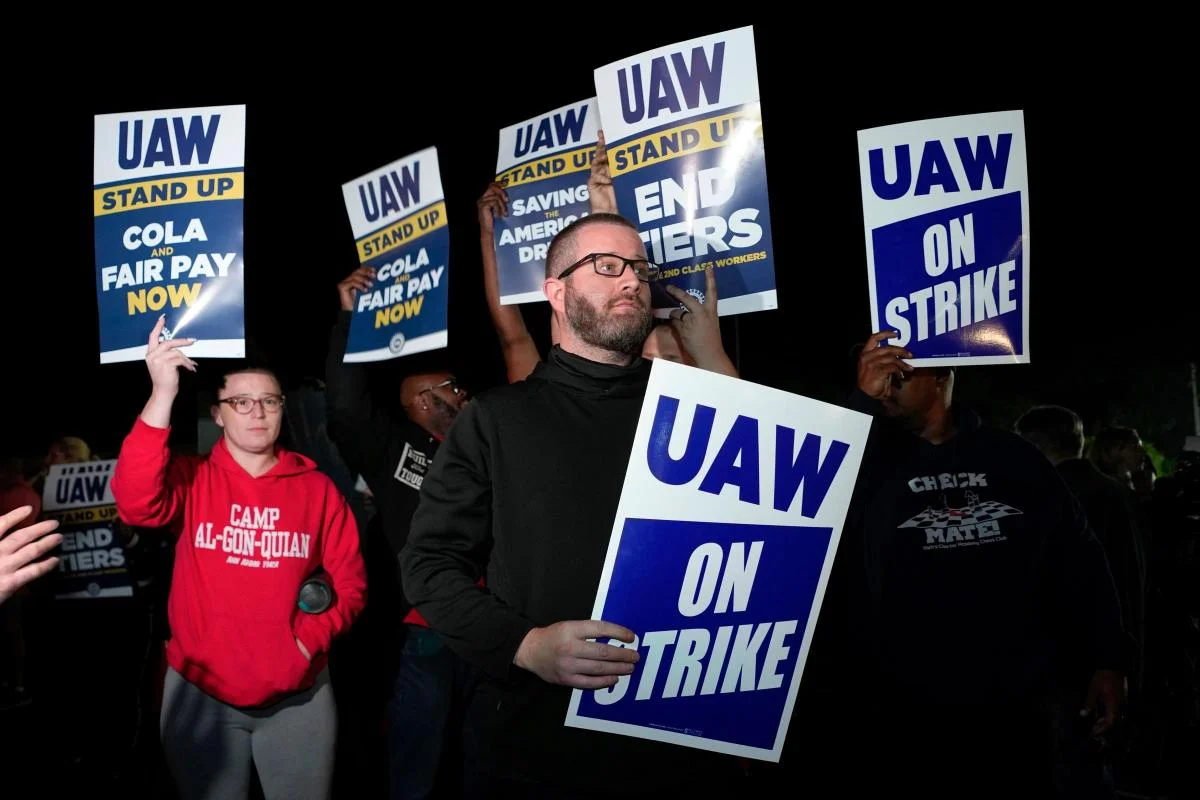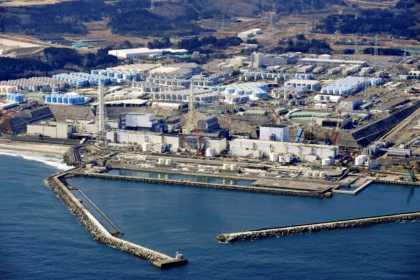The United Auto Workers (UAW) union has launched coordinated strikes at three major automobile manufacturing plants in the United States, marking a significant milestone in their history.
These simultaneous strikes have targeted industry giants General Motors (GM), Ford, and Stellantis, making it the first time that the UAW has embarked on such collective action. The impacted assembly plants include a GM facility in Wentzville, Missouri, a Ford plant in Wayne, Michigan, near Detroit, and a Jeep manufacturing plant operated by Stellantis in Toledo, Ohio.
Initially, approximately 12,700 workers have actively participated in these strikes, highlighting their demands for substantial wage increases, specifically seeking a 36% raise spread over a four-year period.
President Joe Biden has thrown his support behind the striking workers, deploying aides to assist in resolving the ongoing dispute. He has emphasized the imperative for the Big 3 automakers to share their considerable profits with their workforce.
What distinguishes these UAW strikes from their historical counterparts is the departure from their customary approach of negotiating separately with each automaker. Under the leadership of UAW President Shawn Fain, this new strategy aims to maximize the impact on the industry and rectify the concessions made by workers in previous decades.
The calls for fair compensation have deep roots in past struggles, as auto industry workers experienced wage cuts and benefit reductions following the 2008 financial crisis, despite the subsequent profitability of the companies involved.
While these UAW strikes currently affect only a fraction of the 150,000-strong auto workers’ union, there is potential for expansion if the companies do not revise their offers. The outcome of these strikes is expected to shape the future of both the union and the US auto industry, especially as the sector undergoes a significant transition toward electric vehicles.
The unwavering commitment of President Biden to support organized labor, combined with the challenges posed by the UAW strikes, will play a pivotal role in the upcoming presidential election, testing his reputation as a union-friendly leader. The UAW’s historic move has the potential to reshape the landscape of labor relations in the American auto industry.




